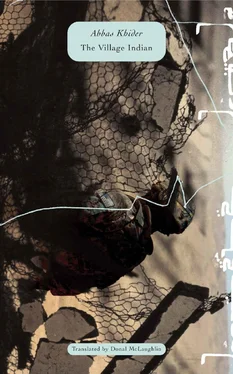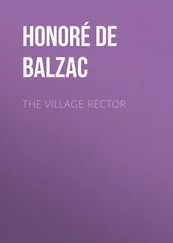So, I have several possible explanations for my dark skin: the rulers’ fire and the Baghdad sun, the heat of the kitchen and the stone-oven embers. They’re all responsible for the fact that I go through life with brown skin, the darkest black hair and dark eyes.
But if these factors made me the way I am, why don’t the other inhabitants of this two-river country look the same? Some do, but I remain so different that people tend to doubt my Iraqi origins. Often, in Baghdad, the bus conductors addressed me in English. I’d just laugh, answer in the vernacular of southern Iraq and leave them staring at me, baffled, as if they’d seen a ghost. The same thing would happen, occasionally, at police checks, and I’d have to answer long lists of questions: What do Iraqis like to eat? What songs are sung to Iraqi children? Which are the best-known Iraqi tribes? Only when I’d answered them all correctly and my Iraqi origins had been proven beyond doubt was I permitted to carry on. The boys in my part of town called me ‘The Red Indian’ because I looked like the Indians in American cowboy films. At intermediate school, they called me ‘Indian’ or ‘Amitabh Bachchan’, after a famous Indian actor I really did look a little like, a tall, thin, brown fellow.
My father was the only person who had a totally different explanation, something really exciting. He took me aside one day — I must have been about fifteen. ‘Son,’ he said, ‘your real mother’s a gypsy. That’s why you don’t look like your brothers!’ He kept it short. They’d had an affair. She was called Selwa. ‘One of the most beautiful women in the world, she was,’ he claimed proudly. ‘Had a butterfly ever landed on her, her beauty would have made it wilt.’
The story began in Baghdad, in al-Kamaliya, a part of town close to ours. A dancer, she was, and a woman of the night. My father was her best customer. She loved him and wanted a child by him and then had that child. My father, though, didn’t want a gypsy to be the mother of one of his children. So, with the men of our tribe, he decided to drive her and her family out of the district but only after taking the baby from her. No sooner said than done. I was accepted into the tribe and the gypsies were chased away. Later, it was rumoured that Selwa had moved with her people to northern Iraq, then left them to migrate alone to Turkey and then to Greece. She’d worked there for a while, for an Egyptian in a dance club, but then killed herself. My stepmother never spoke about it. She brought me up as if I were her own.
The funny thing about this story is that both my mothers have the same name: Selwa. My non-gypsy mother claimed that my father was a liar and I her flesh and blood. Once, she even brought home an old lady who insisted she was present at my birth. She swore on all the prophets that my non-gypsy mother Selwa had indeed given birth to me in the kitchen. The gypsy story I only heard from my father. Once, I even went to al-Kamaliya, aka ‘Whore and Pimp District’, where there really was no shortage of brothels. I asked if they knew a gypsy called Selwa and her people. No one did though. That’s why I doubt there’s anything at all to that story. My father only told it to me, I suppose, to punish me — because I couldn’t stand him.
I didn’t see the story as a punishment at all. Why should I? What was wrong with gypsies? Beautiful women full of fire and passion, whom every man desired. When I was a child, boys used to fight for a chance to watch when, in their skimpy, colourful skirts, the women danced, half naked, at weddings and other parties. I remember how the men’s hungry eyes devoured them. The male gypsies, too, were so handsome that the men in our part of town thought they had to lock their doors to keep their women safe. Always, I believe, when the gypsies had been at one of our weddings, the women round us revelled for weeks in the memory — their black hair, their deep, big bull eyes, their firm muscles and brown bodies, glistening with sweat beneath the blazing lights of the wedding party — and wished they could feel them beneath the covers at night as their hands tried to satiate their unfulfilled desires. It’d hardly have been any different for the men, thinking of those gypsy women, so full of fire.
I really was one of the best-looking boys in our part of town. It’s possible I inherited my looks from my gypsy mother: the colour of my skin, my long, dark curly hair and my big, black, gentle eyes. I adored the gypsies, after all, and the songs they sang. For a long time I carried about a picture of a dancing gypsy woman in my trouser pocket. Nonetheless, I decided to accept my non-gypsy mother as my ‘proper mother’. She was my guardian angel and she loved me more than all my brothers and sisters, her biological children.
The question of whether gypsies are really from India, as some scientists claim, has always interested me. I hope, secretly, the theory is true. I could then initiate myself as an Indian Iraqi gypsy and put an end to all my existential questions! If not, then there must be some other concrete link between me and India, for that country has always haunted me, always played a role in my life.
When, after the Second Gulf War in March 1991, the Shi’ites revolted against the regime, the Iraqi government claimed in its press that these were not real Iraqis but Indian immigrants whose ancestors had come to Iraq in the eighteenth century. The problem was that the theory was rejected by all notable historians as there seemed to be no scientific proof whatsoever for it. But then, they didn’t know me either — living proof that the Shi’ites perhaps could have come from India.
In the first years of the third decade of my life, I fled from the endless fire of the rulers and the merciless Baghdad sun. My path took me through various countries. I lived for a while in Africa, in Libya, with the result that words from the Libyan vernacular began to mix with my Iraqi ones. That led to my next problem. I spent a while in Tripoli, where I met a few Iraqis in a cafe on the beach. When I introduced myself, they responded angrily, ‘Do you think we’re stupid? You’re not Iraqi! You don’t look Iraqi, and the way you speak isn’t right either!’ When I later went to Tunisia, it was very different. In the capital, I noticed right away that the women were round me like bees round honey. In the centre, on Avenue Bourguiba, a group of girls followed me with their flirtatious eyes, shouting to each other quite openly, ‘Hey, check out the good-looking Indian!’ For a whole month I had great fun with the most beautiful women in the streets of Tunis, pretending to be an Indian tourist looking for a guide. And that’s how I found a short-lived love: Iman. For her, my hair was the eighth wonder of the world.
In Africa, no one had a problem with my appearance. I wasn’t blond, and the children didn’t crowd round me, clapping, like they did round the Europeans. The colour of my skin was an advantage. Compared with the locals, I was even regarded by some as white. Everything else, though — life itself, every aspect of it — was in no way easy there, which is why I planned to head to Europe. But the journey was only possible along illegal routes.
In Europe, my appearance again attracted trouble. It started in Athens. In the beginning, fortunately, I had no big problems and I didn’t have to worry about being arrested. There were so many refugees in the country that they’d have needed millions of prisons to lock them all up. From time to time, nonetheless, the police arrested a few — probably to make it look like they were doing something about the refugee problem. Once, they caught me too. I spent a few days in a cell while they tried to arrange a refugee ID card for me.
On the final day, something tragic happened. I needed to go to the toilet. A policeman accompanied me. On the way back he blocked my path and, in a fit of rage, began to beat me. I didn’t understand what was happening and began to shout as loudly as I could. Some of the other policemen came running and saved me from the blows of my escort who seemed to have gone mad. They began to grumble and argue with him. Such a commotion! I didn’t understand a word but guessed that they were angry with him for attacking me. Suddenly, the raging policeman was cowering on the floor, hitting himself in the face and howling. How absurd! I couldn’t make any sense of it! A blond policeman brought me back to my cell. I sat there, fed up with the world, hugely disappointed and sad. I couldn’t believe that in Europe too the police kicked and beat people for no reason. I could never have imagined it. A horrible surprise! In the evening, the door opened and an officer in a smart uniform entered my cell. He had an array of stars and other insignias all over his chest and shoulders. He explained in English that the policeman had lost his head because he thought I was a Pakistani drug dealer the Greek police had been after for a long time. He had, it seemed, lost his youngest brother to an overdose. And because he thought I was that drug dealer, his rage had boiled over and he had lost all self-control. The officer showed me a photo of the dealer. It was hard to believe — he really did look just like me! Two peas in a pod, we seemed to be. I was confused, myself.
Читать дальше












